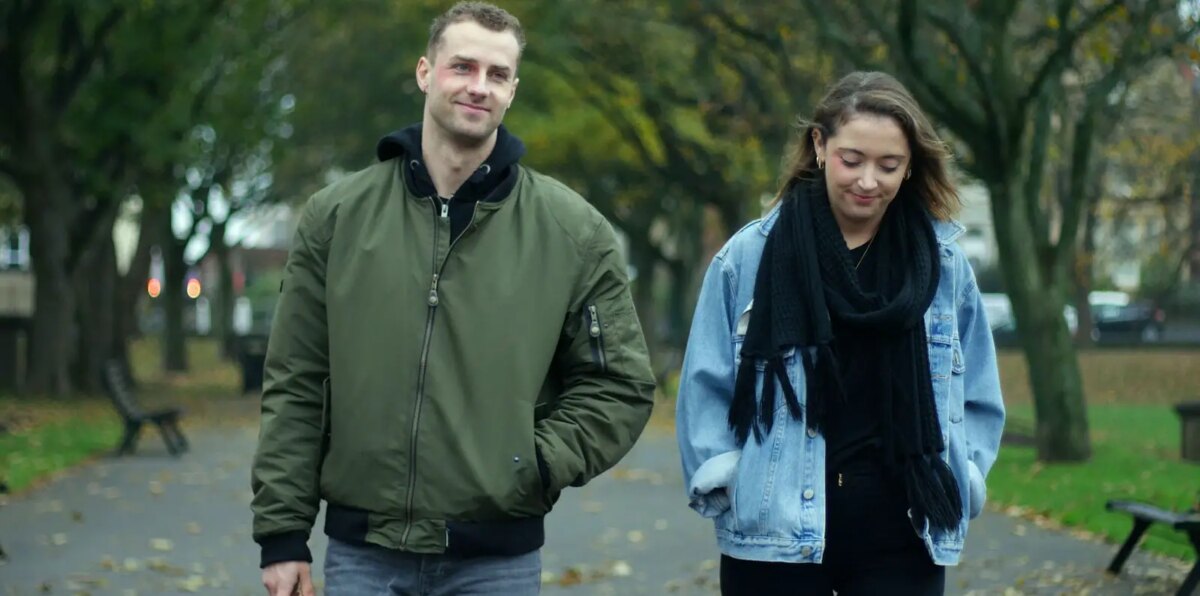
In Ryan J. Smith’s thriller Lottery, the writer-director questions how far one would go to escape poverty and save their girl. Lee (Mitchell Fisher) is a young adult who hasn’t quite got the adult part of his life in order. At the start, his cop father, Jez (Ryan Davies), warns him that he needs to get it together, stop goofing off, and find some purpose in life. Soon Lee storms off to the local liquor store, where he meets Ruby (Niamh Branigan). After some idle chit-chat, Lee purchases a lottery ticket, and the two clearly hit it off. Ruby then gives Lee her phone number, writing it on the back of the lotto ticket.
Returning to his apartment, Lee turns on the TV for the winning numbers, and lo and behold, he just won a million pounds. Unfortunately, before he can enjoy his winnings, Ruby’s ex-boyfriend, Will (Neizan Fernandez), storms into Lee’s apartment, beats him up a bit, and warns Lee to stay away. He then takes the lottery ticket with Ruby’s phone number, not knowing it’s the winner. Now desperate, Lee finds Ruby and gets her and his friend Darren (Harry McLafferty) to help sneak into Will’s apartment. Unfortunately, the man shows up and, in a standoff, accidentally kills Darren.
I recently reviewed Ryan J. Smith’s film, Talking to Ghosts, and much of the same praise for that film also applies to Lottery. First, I admire any filmmaker who can make a film we thought only the big studios could make. In this case, it’s a thriller. The story is pretty solid in that it’s less about getting a lottery ticket back than the lead’s dead friend. It’s more about the power and control one can have over our lives, which comes into play when Ruby and Will enter the picture.
“…takes the lottery ticket with Ruby’s phone number, not knowing it’s the winner.”
As a low-budget thriller, the film’s missing a lot of action, which is expensive, particularly when stunts are involved. So any fighting is lightning quick, and there are no foot or car chases. But, like a good indie filmmaker, Smith finds a way to build suspense from the tension in the story. Like in Talking to Ghosts, the weaknesses of Lottery come in the fact that the film relies heavily on the drama more than the suspense to create its thrills. As a result, it begins to feel like a stage play rather than a cinematic thriller.
Smith does add a soundtrack to amp up the suspense, but in the end, he needs to heighten the character development. Yes, Lee wants that lottery ticket, and we know how he could use that money. That motivation to risk everything to get it needs to match the cost (i.e., his friend’s life). Lee acts violently out of jealousy. We know why and how Ruby is involved, but again the motivation needs to match the consequences of killing Lee’s best mate.
In the end, Lottery is a good thriller, but by raising the stakes even higher for the protagonist and the antagonist, you’ll have a thriller that can truly compete with the big boys.
For more information about Lottery, visit the Skint Film company website.














